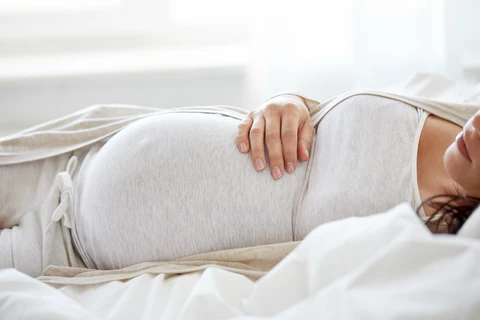
Periodontitis in pregnancy – trigger for premature births?
Pregnancy is a turning point in every woman’s life. This exciting time demands a lot from the female body – especially from the teeth.
Instead of just thinking about building a nest, I would like to encourage you to think about yourself too. Listen to yourself and what is good for you – and what is not. Because what is good for you is definitely good for your child! Take care of yourself – optimized oral hygiene is part of that.
The expectant mother’s immune system is reduced. This is part of the perfect biological program. But this also brings with it an increased tendency to inflammation. In addition, there is a loosening of the connective tissue and a general increase in blood flow to the tissue. This is also why pregnant women look radiantly beautiful. They embody vibrant life.
What is less pleasant is that for the reasons mentioned above, women during pregnancy have to struggle with increased bleeding gums, known as gingivitis. In addition, the increased estrogen levels in the blood and saliva stimulate the growth of bacteria that promote periodontitis.
Nature has provided a sophisticated self-help mechanism for this: the pregnant body produces more of the hormone cortisol. It has an anti-inflammatory effect, which in principle suppresses the symptoms of periodontitis without stopping the disease. The cortisone level is increased in order to provide more glucose, which results in an increase in blood sugar: this in turn increases the tendency to inflammation. At the same time, the cortisone suppresses the immune system. It is precisely this temporary suppression of symptoms during pregnancy that leads to periodontitis becoming even more severe afterwards.
Dental care deserves the utmost attention during pregnancy
This protective mechanism of the body described above provides evidence that periodontitis during pregnancy is detrimental to the child, precisely because the body tries to avoid it with its methodology.
A study by the International Association for Dental Research in Washington D.C. showed that: In fact, there is a more than three-fold higher rate of premature births in women with periodontal disease than in women with healthy teeth (23.4% vs. 7.2%). In individual cases, an enzyme test for metalloproteinases (aMMP8) should be considered. It provides information on whether periodontal therapy is advisable during pregnancy in order to reduce the risk of premature birth. Depending on the result, periodontal therapy can also be postponed until after the pregnancy.
I advise my pregnant patients to visit the dental hygienist more frequently during this time and to pay particular attention to daily oral hygiene in order to counteract the occurrence of inflammation.
Today’s modern everyday life pays little attention to the needs of pregnant women. Many women, especially those who lack family support, feel overwhelmed.
But precisely because you have to manage your energy particularly efficiently: take the time for optimized dental care and oral hygiene!
